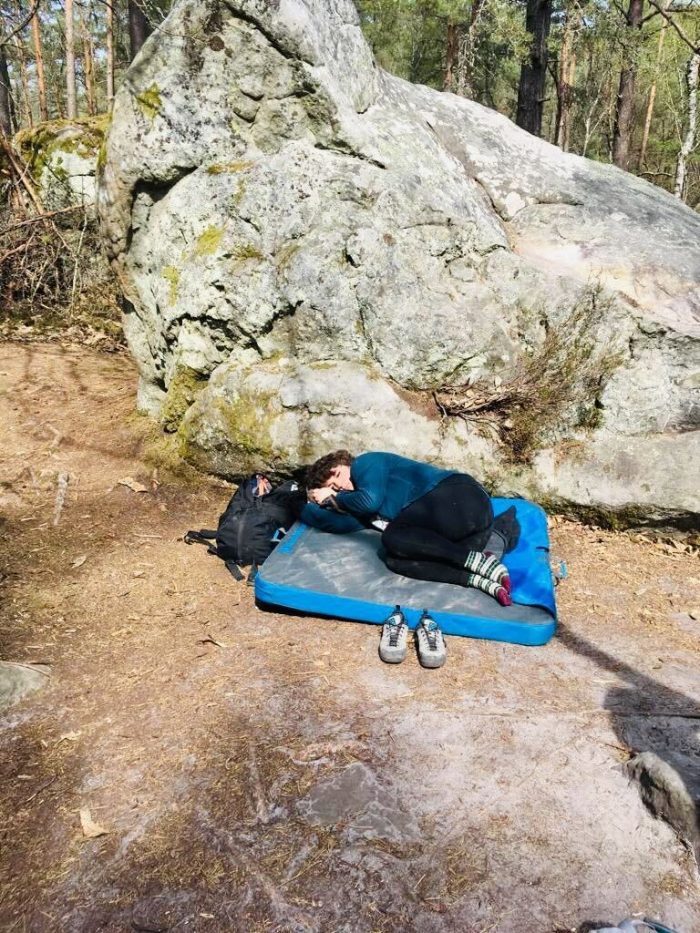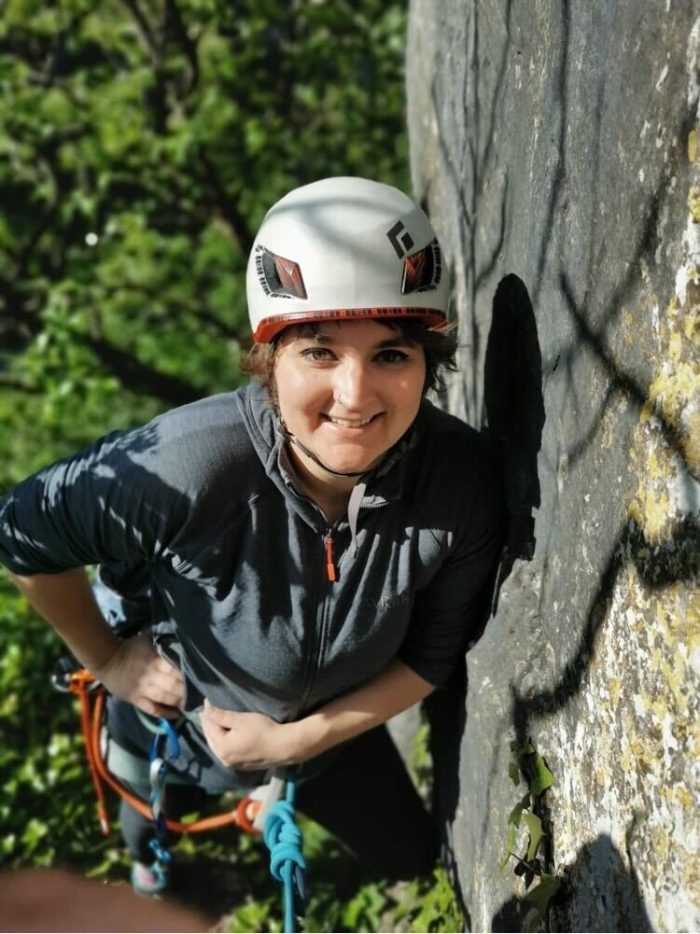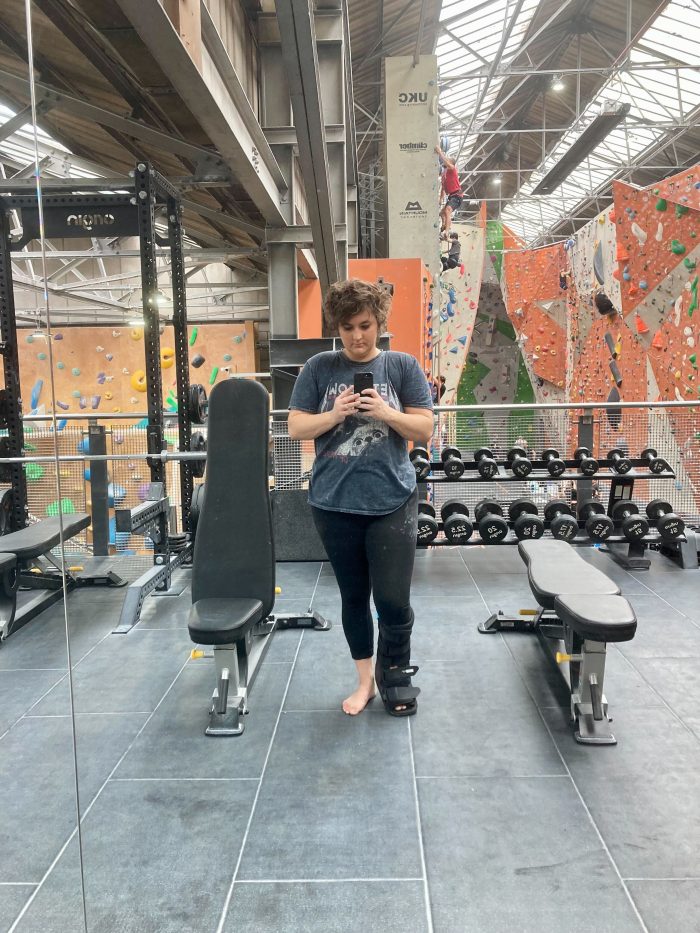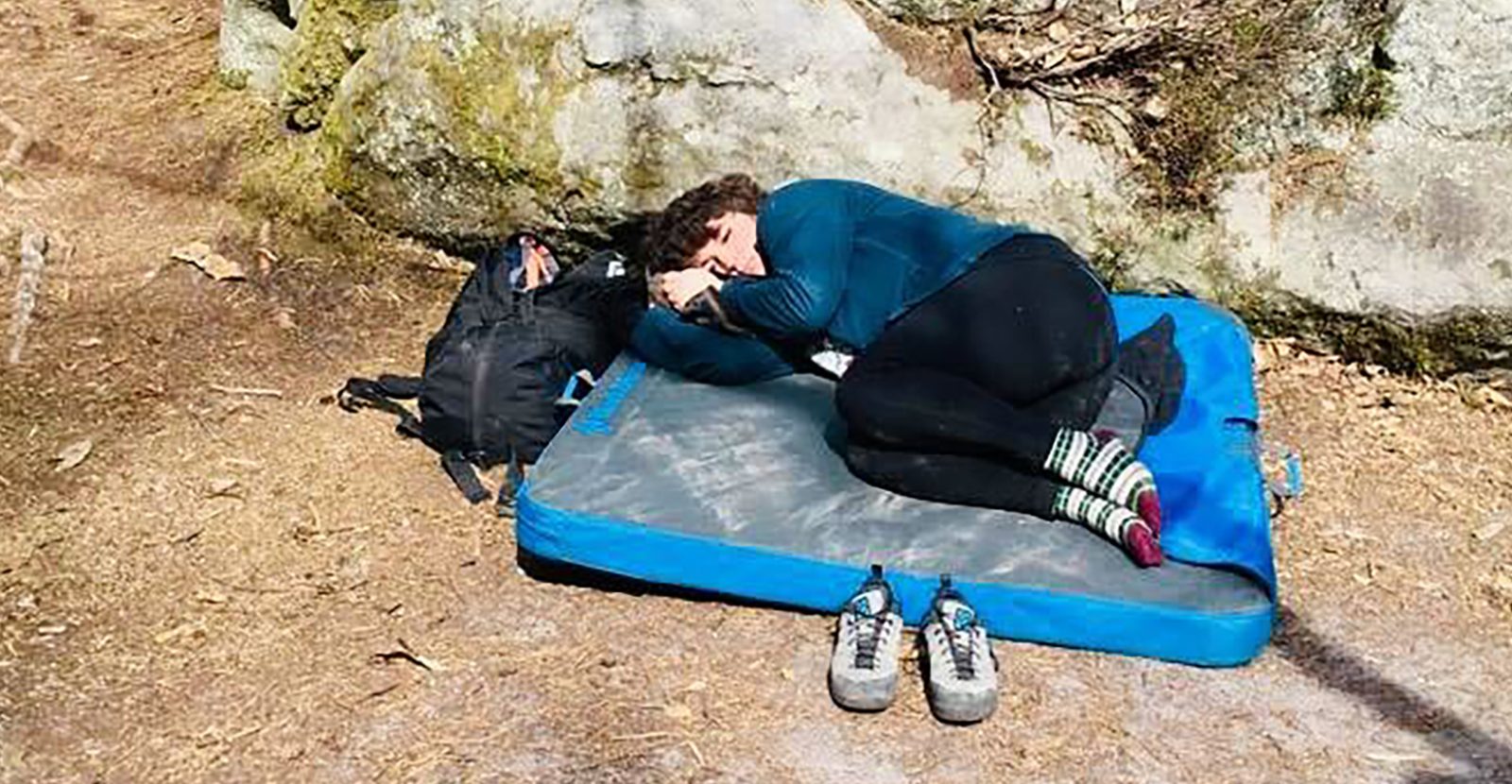For Mental Health Awareness Week 2024, Clara gives us an insight into a difficult relationship with climbing over the last few years…
Why do you climb? To be strong? Feel strong? Climb that grade? Push yourself? Be better? Than someone else or than you were yesterday?
This question has become one of the most important questions for me in the last few years. In fact, I am not sure I would still be climbing if I hadn’t continued to stubbornly ask and re-ask that question and find honest answers for myself.
In 2020, I got COVID twice. In 2021, I would end up getting it another two times. What followed was Long COVID. For almost 2 years, I chipped away at building strength again, getting endurance back, living with the fact that if I wanted to try hard, I would pay the price of terrible muscle and joint pain and coughing fits.
And it was worth it. Today, I only get light joint pain occasionally. The cough is not that bad any more.
I managed to come back and in summer and autumn 2022 climbed all my hardest grades, indoors, outdoors, bouldering, sport climbing.
How did I get there? With tantrums and frustration and the question “Why do I climb?”. Am I here because I only enjoy climbing when I climb certain grades? Are lower grades not worth climbing? It has actually nothing to do with the grades. I love that I can show myself that I am stronger than I thought. That I can push my limits. That I can get curious about a puzzle that is a move or a climb and get lost in the process. That it teaches me: If you keep trying, there will be progress. You are never stuck.
At the end of 2022, my mental health imploded. While I had been really focussed on getting my physical health back, my mind needed help. Suddenly, I was too overwhelmed to climb. How could I push my limits and myself when I was already at breaking point? I had often wondered why I often struggled to feel and coordinate my body. Often there were moves, sometimes basic ones, that I couldn’t coordinate. Was I dyspraxic? Therapy taught me that I wasn’t but that I simply had been in a slightly dissociated state for a very long time. I learned how to leave that state, how to feel and coordinate my body and what happened was: Climbing was suddenly even more overwhelming. Suddenly, I would get so much feedback from every part of my body. I had proprioception. I could feel it ALL. I felt like I was being asked to drive a car without ever having taken any driving lessons and this time there were moments where I was sure: I might not be able to continue climbing. But I am still here.



How did I get there this time? Again with tantrums and frustration and the question “Why do I climb?” This time, I thought about my favourite climbs and what made them my favourites. The answer was: The movement on the climb. Sometimes specific moves. Often the feeling of flow while going through the moves. And so I started looking for that. Very easy climbs and whenever I found a move or a sequence that felt good in my body, that didn’t overwhelm but instead was satisfying, I made a mental note and savoured it. I still get overwhelmed sometimes but my climbing and climbing movement has improved loads.
In August 2023, I fractured my ankle on a solo hiking trip. And after months and months of physio and rehab and gentle climbing and slowly improving and slowly climbing harder again, I lost patience, went bouldering and fell off a boulder and was suddenly back nursing my newly swollen and painful ankle. I had the tantrums, felt the frustration and again asked the question “Why do I climb?”.
I climb because it teaches me that if I keep trying there will be progress. It teaches me to be confident in the fact that I am never stuck. It shows me that I get joy out of all kinds of movement. And that as long as I know what I need, it will provide.
Starting to return to climbing now, without throwing a tantrum or feeling frustrated, a new answer to the question has come up so naturally: I climb because of the people. The person who is willing to suffer through an endurance set with me. The person that will high five me after I fight through a crux,. The person that is happy to get a cup of tea instead of climbing on an off day.
They are the people that are worth keeping close to enjoy the good times and make those tantrums and frustrations more bearable.
Clara is the Centre Manager of Parthian Climbing Reading.
This year’s Mental Health Awareness Week is focussed on movement. You can read the Mental Health Foundation’s report on why movement is so important to mental health, along with some other interesting articles, here. Sport England also have a page explaining why they invest in mental health and the benefits of physical activity.
As Clara highlighted in her post, climbing is also about the amazing community of people who come together to support each other. Whilst movement is important to maintaining good health, so is having a support network of good people.
The climbing community is incredibly welcoming but, if you’re not the type to strike up a conversation with people you’ve never met before, our Social Clubs are a great way to meet new people in a friendly, supportive environment. There’s no extra charge to attend so, if you’re feeling low and you want to meet some great people to help boost you up, come along and say hi. You’ll always be welcome.
